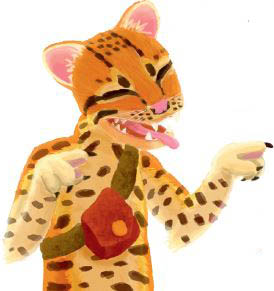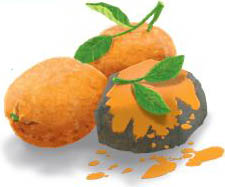
Merchants can join forces with others to form teams when playing with 4 players. This reduces downtime and greatly improves gameplay. We recommend using team rules after a couple of games with normal rules, which familiarizes you with the game's core mechanisms.
Changes to the normal rules
There are two teams with both containing two players. Two of the players sit opposite to each other and are in the same team. The other two players, who also sit facing each other, are in the other team. Thus, each player has an opponent on both sides and a teammate across the table.
During setup, choose 4 animalfolk decks instead of 5 to include in the game.
Note: The game comes with 20 junk cards. You need 4 more for the team rules, if you don't own Dale of Merchants 2. In that case, take all 1 valued cards from a single deck not used in the current game and use those as substitutes for junk.

On a rare occasion the guild accepts two new members at the same time. These unconventional events need unconventional methods. To save veryone's resources, it has been decided that all participants form teams which take part in the competition. The winning team isn't just best at trading, they also excel at communicating.
Each team shares a stall. The first team to finish their ioth stack wins the game immediately.
When you build a stack, your teammate can help you by adding one or more cards to the stack. Remember to fill your hand only after your own turn.
When a card affects "another player", you are allowed to choose your teammate. Card effects affecting " other players" only affect players in the opposing team. For example, discarding cards and paying extra for cards. " All players" and " each player" still refer to everyone.
All communication is public.

In order to keep the competition as fair as it can be with such imaginative folks, there has to be some rules in place. Tricks are allowed as long as everyone is in plain sight. Then you can only blame yourself, if you got outplayed by a more cunning individual.
Examples:
You're not allowed to swap Acorn (Hoarding flying squirrels 4) with a card from your team's stall as it's considered yours.
Your teammate doesn't discard a card, when you play Nuisance (Thieving northern raccoons 2).
Exception, Blindfold (Lucky ocelots 5): You're not allowed to ask from your teammate.
Continue Reading

